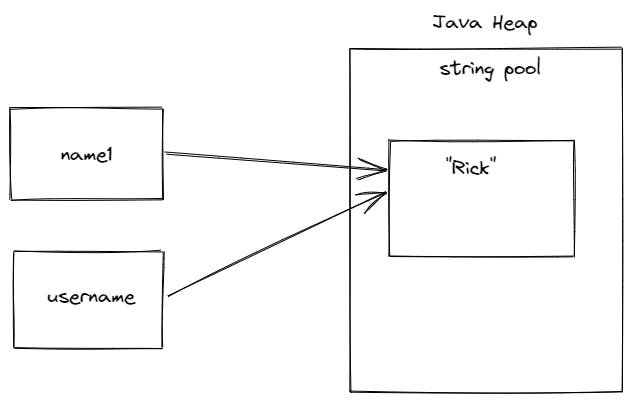Why Are Strings Immutable in Java? Enhancing Code Reliability
Why Are Strings Immutable in Java? Enhancing Code Reliability
Blog Article
What Is Immutable Strings and How It Works
In the world of programs, recognizing the idea of unalterable strings is critical for creating durable and safe applications. Immutable strings refer to strings that can not be changed after they are created, making certain information honesty and predictability within the code.
The Fundamentals of Unalterable Strings
Immutable strings, as a fundamental idea in programming, are personality series that can not be altered when they are produced. This suggests that when a string is designated a worth, that worth can not be altered. In languages like Python and Java, strings are unalterable items, resulting in different effects in regards to memory management and information integrity.
Among the key advantages of immutable strings is that they offer a sense of safety in information manipulation. Given that the material of an unalterable string can not be modified, it makes sure that the original data continues to be intact, decreasing the risk of unintended changes during program implementation (Why are strings immutable in Java?). This building also streamlines debugging procedures, as designers can rely on that as soon as a string is specified, its value will not be inadvertently changed
Moreover, unalterable strings help with effective memory use. When a brand-new string is produced based upon an existing one, rather than customizing the initial string, the new worth is stored individually. This method boosts performance by minimizing memory fragmentation and streamlining memory appropriation processes. On the whole, understanding the essentials of unalterable strings is crucial for mastering shows principles and maximizing code performance.
Benefits of Unalterable Strings
Structure upon the security and effectiveness benefits of immutable strings, their advantages include improving code dependability and streamlining simultaneous programs jobs. By being immutable, strings can not be modified after production, which gets rid of the threat of unplanned adjustments in the data they keep. This intrinsic immutability ensures that as soon as a string is developed, its worth continues to be consistent throughout the program's implementation, decreasing the chances of pests triggered by unexpected alterations.
In addition, immutable strings add to code reliability by making it less complicated to reason about the state of a program. Because strings can not be changed, programmers can rely on that a string will constantly hold the very same worth, streamlining debugging and maintenance efforts. This predictability leads to a lot more reliable and steady codebases.

Execution in Programs Languages
Within different programming languages, the unification of immutable strings is a basic element that influences how data is dealt with and manipulated read more within code structures. The execution reference of immutable strings varies throughout different programs languages, with each language using its very own mechanisms to sustain this idea.

In contrast, languages like C and C++ do not have built-in assistance for immutable strings. Programmers in these languages need to manually carry out immutability by imposing policies within their code to avoid straight modifications to string items.
Ideal Practices for Collaborating With Immutable Strings
When managing unalterable strings in shows languages like Java and Python, adhering to finest practices makes sure efficient and safe and secure data manipulation. One of the vital ideal techniques is to make use of StringBuilder or StringBuffer rather than straight adjusting strings, specifically when taking care of considerable concatenation operations. These courses offer mutable choices for string manipulation, assisting to prevent unnecessary memory appropriations and improving efficiency.
An additional ideal technique is to utilize string interpolation my latest blog post or format operates provided by the language rather of hand-operated concatenation. This not just improves readability however additionally help in avoiding usual risks such as unintentional string adjustments. Additionally, when dealing with delicate data such as passwords or API secrets, it is vital to avoid saving them as simple text in immutable strings. Using secure storage space systems like char varieties or specialized collections for managing delicate details aids mitigate safety and security dangers related to immutable strings.
Real-world Applications and Instances
Checking out sensible applications of unalterable strings in various markets exposes their considerable influence on information stability and system reliability. In the health care sector, immutable strings play an important role in ensuring the protection and confidentiality of person data. By preventing unapproved adjustments to sensitive information such as clinical records and prescriptions, immutable strings assist maintain conformity with stringent privacy regulations like HIPAA.
Banks likewise gain from the unalterable nature of strings to enhance the protection of customer information and purchase documents. Unalterable strings help avoid fraud and unauthorized alterations to economic information, supplying a durable protection versus cyber dangers and making certain the trust and confidence of clients.

Conclusion
Finest techniques for functioning with immutable strings consist of avoiding direct adjustments and using methods that return brand-new string things. Real-world applications of unalterable strings consist of information encryption, caching, and string manipulation jobs.
Unalterable strings refer to strings that can not be changed after they are produced, ensuring information honesty and predictability within the code. When a brand-new string is created based on an existing one, instead than modifying the initial string, the new worth is saved separately.In languages like Java and Python, strings are unalterable by default, suggesting that once a string things is produced, its worth can not be altered - Why are strings immutable in Java?. Finest techniques for functioning with immutable strings include preventing straight alterations and making use of approaches that return new string objects. Real-world applications of immutable strings include data encryption, caching, and string manipulation tasks
Report this page